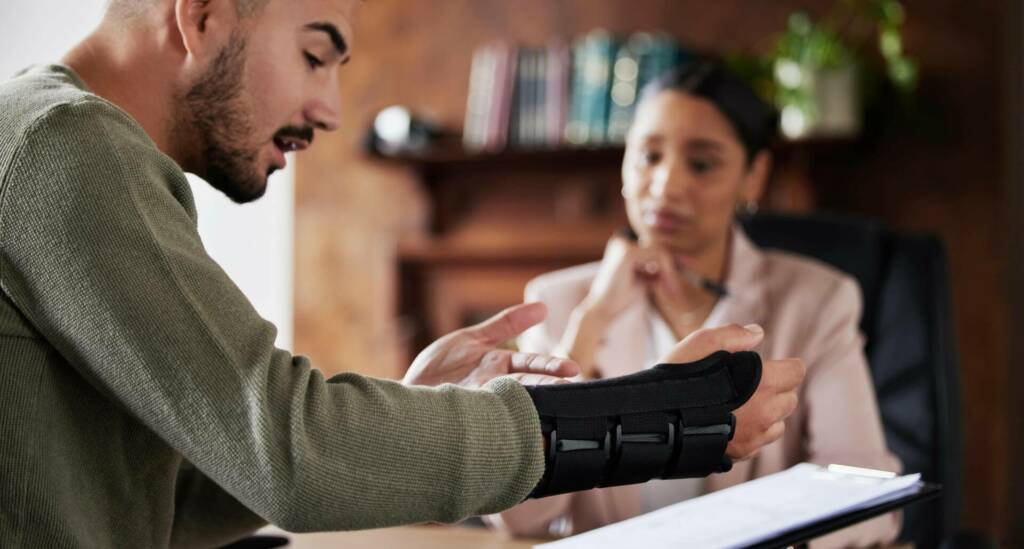Are the items you purchase safe for you and your family? What can happen if a defective item injures someone? What will a Halifax personal injury lawyer do on your behalf if you’re injured by a defective product?
Every year, defective consumer products – including vehicles and vehicle parts, electronics, tools, appliances, and children’s toys – injure scores of people in Nova Scotia. What are your rights if you’re injured using a defective consumer item? What steps should you take?
If you’ll keep reading, you will learn the answers to these questions and the facts about product liability law. You’ll also learn about the class action lawsuits that are now frequently filed by consumers who are seeking justice from the manufacturers of defective consumer products.
What Should You Know About Product Liability Laws?
When you buy a product, you have the reasonable expectation that the product will be safe. Every business that makes consumer products must ensure that their products are safe when used as directed. You also have a right to medical devices and medications that are free from defects.
If you are injured using a consumer product, the first step is identifying the party or parties at fault. It sounds easy, but determining who has liability can be complicated. Every party in a consumer item’s distribution chain – from manufacturer to retailer – is a potential defendant.
Products with numerous parts, such as appliances and vehicles, are produced by more than one manufacturer. If you’re injured by a defective airbag in your car, for example, both the airbag’s manufacturer and the manufacturer of the vehicle may be named as defendants in your case.
Marketers and designers of defective items may also have liability. Depending on the details of the case, a product liability claim may be brought against the business that made the item and the businesses that designed it, made parts for it, and inspected, distributed, or sold it.
Should You File a Product Liability Lawsuit?
If you’re injured in Nova Scotia by a defective consumer item, to recover compensation for your medical bill and lost income, you and your lawyer must prove that you were using the item as it was intended. If you hurt yourself by misusing an item that’s not defective, you have no case.
Defective products cause injuries ranging from bruises and cuts to brain and spinal cord injuries, but the injuries that are linked to vehicles, vehicle parts, power tools, electrical appliances, and prescription or over-the-counter drugs may cause long-term or permanent physical disability.
Save the sales receipts for every item you buy. If you’re injured by a power tool, let’s say, that’s been on a shelf for years, you may not remember where you bought it, and after several years, labels wear and fade. You can’t be compensated for an injury if you don’t know who’s liable.
When an injury caused by a consumer product happens, obtain medical treatment first, and try to gather evidence – photographs of the accident scene and your injuries, a sales receipt, and any labels or packaging. Until you consult a lawyer, hold on to any evidence that may be pertinent.
What Can You Recover With a Product Liability Lawsuit?
Victims who suffer serious spinal cord injuries or traumatic brain injuries and those who need multiple surgeries, amputations, or medical care for life will need the maximum compensation amount that’s available – and a lawyer who won’t settle for less.
When an injury victim prevails with a product liability claim, the victim may recover compensation for all injury-related current and projected medical costs, lost wages and projected future lost wages, personal pain, suffering, and all other injury-related losses and damages.
In many product liability cases, a single individual (the “plaintiff”) files a lawsuit to recover compensation, but if the liable party is a large company or corporation, an injury victim should consider filing a class action lawsuit with help from a Nova Scotia product liability lawyer.
How Does a Class Action Lawsuit Work?
In a class action lawsuit, one or more individuals bring a claim on behalf of a larger group of plaintiffs. A court reviews the claim and determines if it should be certified as a class action case.
If a case is certified, a defendant may settle the case out-of-court to avoid the cost and time that a trial requires. If no out-of-court resolution is possible, the case will proceed to a “common issues trial” where the court will rule on the legal issues common to the group of plaintiffs.
The advantage of a class action is leverage. A single victim injured by a consumer item may not have the resources to fight a corporation, but if the same corporation faces a potentially larger judgment for dozens of plaintiffs, those plaintiffs have more leverage to resolve their claim.
What Does a Plaintiff Have to Prove?
A plaintiff and his or her lawyer in a product liability case must not only prove that a defendant was negligent but also must prove that the injury is a direct result of that negligence. To be exact, a plaintiff must prove the following to prevail with a claim against a product manufacturer:
- The manufacturer owed the plaintiff a “duty of care.”
- The manufacturer breached that duty of care through negligence.
- The negligence was the direct cause of the plaintiff’s personal injury.
- The plaintiff also suffered financial losses and should be compensated.
Even if a manufacturer was negligent, to obtain compensation, a plaintiff also must prove that the manufacturer’s negligence directly caused the injury. It’s a lot to prove, but if you have the evidence and the services of a Nova Scotia product liability lawyer, your claim should prevail.
How Will a Product Liability Lawyer Help You?
If you are injured in Nova Scotia while using a consumer product, obtain medical treatment immediately. That’s the first priority. Don’t discuss the matter with an insurance company until you’ve consulted first with a Halifax personal injury lawyer.
Some insurance companies may offer you a quick, “lowball” amount that’s far below the amount your claim is worth. Don’t accept the offer. Instead, have a Halifax product liability lawyer – who is an experienced negotiator – negotiate and advocate on your behalf.
There is no way to guarantee that you will never be injured by a consumer item. In the modern world, there are just too many things that can go wrong. But if you do become injured by a consumer product, the law is on your side, and a Halifax product liability lawyer will help.










